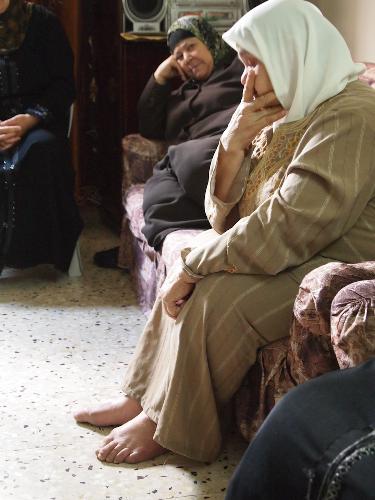Tag: Prisoner
-
Brother and sister arrested without charge in Kufr Qalil
12th May 2013 | International Solidarity Movement | Nablus, Occupied Palestine Team Nablus At 1:30 am on May 12, Israeli soldiers arrested a brother and sister from Kufr Qalil without charge and ransacked their home, terrorizing their family and leaving them with no information about the siblings’ imprisonment. Israeli soldiers arrived at the residence of…
-
Activists remove section of apartheid wall in solidarity with Palestinian prisoners
17th April 2013 | International Solidarity Movement, Ramallah, Occupied Palestine This Palestinian Prisoners Day, the 17th April 2013, Palestinian and international activists cut down a fenced section of the Israeli apartheid wall in solidarity with Palestinian prisoners held in Israeli occupation jails. A section of around ten metres was torn down near Ofer prison, where…
-
This Palestinian Prisoners Day we remember Bassem Abu Rahma who was murdered four years ago today
17th April 2013 | International Solidarity Movement, Occupied Palestine By Team Khalil Today is Palestinian Prisoners Day which also marks the 4th anniversary of the death of Bassam Abu Rahma and the 270th day of Samer Issawi’s hunger strike. These two events perfectly illustrate the ongoing perseverance of the Palestinian peoples relentless struggle for peace,…

